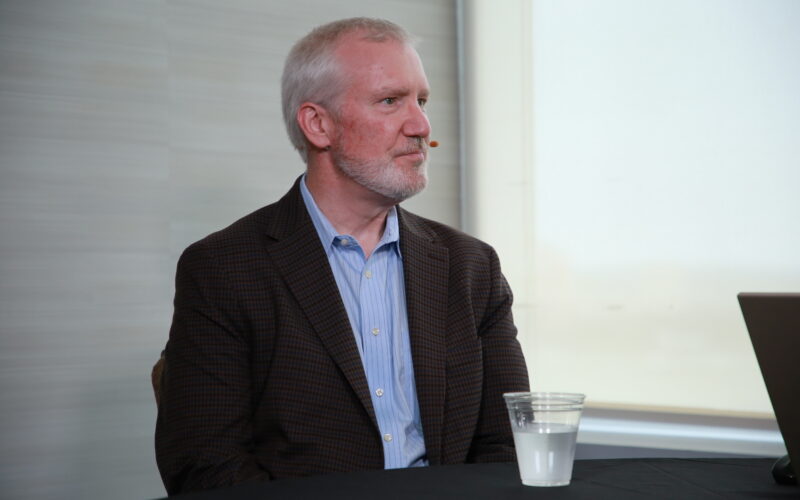As data continues to be at the epicenter of better decision-making in organizations, viewing data as a product should be part of the compass for enhanced value acceleration.
For data to materialize as a product, design thinking is essential because information should be shared in a standardized way using a mesh framework, according to John Spens (pictured), managing director of North America data and AI at Thoughtworks Inc.
Thoughtworks’ John Spens takes theCUBE through the data as a product lens.
“The principle most quickly embraced by our clients, by individuals I talked to, by myself, was that idea of thinking of data as a product,” Spens said. “Bringing together those skills of product thinking, design thinking, with those hard skills of understanding how to use these solutions. Thoughtworks has been working with our clients to put those practices in place and learn what changes are necessary to truly make data mesh successful.”
Spens spoke with theCUBE Research’s Dave Vellante and Paul Gillin at the CDOIQ Symposium, during an exclusive broadcast on theCUBE, SiliconANGLE Media’s livestreaming studio. They discussed why the concept of data as a product is a game changer.
How DATSIS fits into the data as a product equation
As enterprises continue to be data-driven, the idea of data as a product is sinking in based on the need to leverage and manage it effectively. As a result, innovative data management approaches, such as Data, AI, Technology, Security, Infrastructure and Services, are taking center stage, Spens pointed out.
“I think that most organizations, most practitioners that we work with follow that journey of understanding if this data is going to be consumable,” he noted. “When Zhamak put forward the principles of DATSIS or the fair principles for data, describing how data has to be findable and needs to be interoperable, you start to understand how governance plays such a critical role in ensuring that data is readily consumable.”
For data governance to be federated and automated, an evolutionary approach, such as show, shift and scale is required. As a result, an organizational business first mindset is needed since data governance should not be treated as a bolt-on, Spens stated.
“Nobody’s gotten their governance house in order first,” he said. “It’s always been that cleanup afterwards, and they realize that’s the real challenge. Our approach with our clients in trying to tear this apart, is to start small, is to work in a singular or set of simple use cases with the eye to the future. We call it show, shift and scale. Demonstrate the value, shift from a proof of value to a way of working and then scale it across the enterprise.”
Since design thinking is important in data product management, the incorporation of technological innovations, such as artificial intelligence comes in handy. This approach helps in making data consumable, according to Spens.
“With the introduction of AI, we have the opportunity to circumvent old processes and produce more useful solutions if we understand what the need is, what our customers, our data consumers, are trying to produce,” he added.
For the concept of data as a product to evolve, an open-source approach is needed. As a result, Thoughtworks makes this objective a reality, according to Spens.
“Being from Thoughtworks, we have been adopters of open-source software,” he said. “I’ve been in the data industry for over 30 years, so that move from very singular large proprietary solutions to an open-source format … there’s the greater interoperability.”
Here’s the complete video interview, part of SiliconANGLE’s and theCUBE Research’s coverage of the CDOIQ Symposium:
Photo: SiliconANGLE
Your vote of support is important to us and it helps us keep the content FREE.
One click below supports our mission to provide free, deep, and relevant content.
Join our community on YouTube
Join the community that includes more than 15,000 #CubeAlumni experts, including Amazon.com CEO Andy Jassy, Dell Technologies founder and CEO Michael Dell, Intel CEO Pat Gelsinger, and many more luminaries and experts.
THANK YOU
Source link
lol

